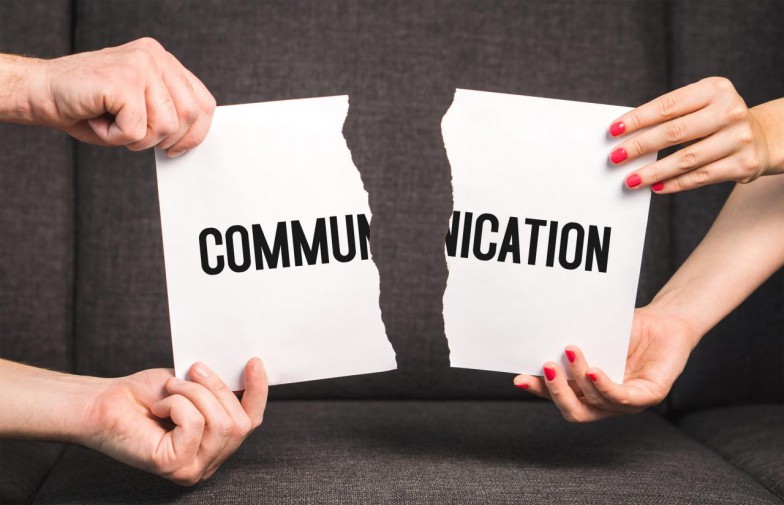
Why Won't They Listen?! How To Work on Broken Communication
Broken communication can affect any relationship. Thankfully, you can use these tips to start working on your partnership. Here’s what you need to know.
Any relationship can go through broken communication issues.
Working on communication issues is crucial for creating trust, connection, and a long-lasting relationship.
People communicate in a variety of forms. You might use words, nonverbal cues, vocal tones, or actions to express your feelings. These conversation methods are integral to a healthy relationship. Broken communication might lead to conflict, intimacy issues, or cause you and your partner to drift apart. That's why it's crucial for you and your partner to work through these issues and understand each other.

Recognize your communication habits
You'll need to look inward before you can resolve communication issues. Think about your conversation habits and how you communicate, and identify any areas that need improvement. Maybe you resort to being passive-aggressive instead of talking about your feelings. Do you brush things under the rug to avoid conflict or resort to aggressive speech in heated moments? As the saying goes, "If you wanna make the world a better place, take a look at yourself and then make a change."
Tips to improve broken communication
It's time to start improving communication in your relationship now that you've done some introspection. Remember that improvements take time, effort, and consistency and won't happen overnight. However, you can open the door for more honest and open conversation with these tips in mind.

Tip #1: Process your emotions first
Did you guess that the first tip would be more introspection? Regardless, it's essential to process your emotions and calm down before addressing an issue with your partner. Going into a conversation before you've worked out your feelings might lead to more conflict, emotional outbursts, or poor resolutions.
Take as much time as you need to process your emotions. You don't have to rush yourself to a conclusion. Consider going for a long walk or a scenic drive to process your feelings. Listening to music and journaling your thoughts might also help.
Tip #2: Don't play the blame game
The words you choose can have an incredible impact on your partner. Pointing fingers, playing the blame game, and avoiding responsibility can make your partner feel defensive. Instead, use "I feel" statements.
"I feel" statements or I-statements are a powerful communication tool. These statements will allow you to communicate your feelings and beliefs without focusing on your partner's actions.
For example, you might say, "I feel uncared for when you don't text back." This statement works better than something more accusatory like, "You never text me back," or, "You don't care about me."
Tip #3: Focus on listening and being heard
There's a distinct difference between listening to someone and hearing them. Hearing someone is like gathering information, while listening takes time to consider and understand that information.
Remember that you and your partner are on the same team. The conflict you're having isn't a debate with a winner or loser. Even if you disagree, it's essential to listen to your partner's feelings and try to understand their point of view. Try not to interrupt or only wait for your turn to speak. You can even use specific dialogue techniques to help you along the way.

Tip #4: The goal is compromise and resolution
It's easy to go into relationship issues trying to win or maintain the last laugh; but remember that at the end of the day, the goal of communication is understanding, compromise, and resolution.
You and your partner should leave a conversation feeling like there's been some resolution, regardless of the issue. The solution might be some form of compromise. For example, it could be a compromise on doing the dishes or spending habits.
Either way, changing your goal from self-righteousness to collaboration, compromise, and resolution is sure to positively impact the outcome of a conversation.
Tip #5: Be sure to check in
Checking in with your partner and touching base throughout the day might improve your communication. You might also want to check in after a resolution has been made to see how things are progressing in your relationship.
Let your partner know how you're feeling and see how they're doing. Let them know if you're in a sour mood to prevent emotional outbursts or conflicts. You can even use a scale of 1 to 10 to make things easier.
Broken communication issues aren't problems that can be easily swept under the rug. Poor communication can lead to conflict, intimacy issues, and you and your partner drifting apart. Thankfully, you can start resolving these issues by following the tips above.
Try bonding with your partner through an in-home spa treatment by using the MOBILESTYLES App. Download the app today at https://mobilestyles.com/download!






